Life
Sign up for our newsletter
We summarize the week's scientific breakthroughs every Thursday.
-
 Animals
AnimalsWhat the first look at the genetics of Chernobyl’s dogs revealed
Dogs living in the Chernobyl Nuclear Power Plant industrial area are genetically distinct from other dogs, but scientists don’t yet know if radiation is the reason.
By Meghan Rosen -
 Life
LifePlant/animal hybrid proteins could help crops fend off diseases
Pikobodies, bioengineered proteins that are part plant and part animal (thanks, llamas), loan plant immune systems a uniquely animal trait: flexibility.
-
 Climate
ClimateWildfires in boreal forests released a record amount of CO2 in 2021
Boreal forests store about one-third of the world’s land-based carbon. With wildfires increasing there, fighting climate change could get even harder.
By Nikk Ogasa -
 Life
Life‘We Are Electric’ delivers the shocking story of bioelectricity
Sally Adee’s new book spotlights the underexplored science of the body’s electricity and investigates how bioelectricity could advance medicine.
By Meghan Rosen -
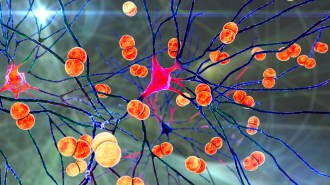 Neuroscience
NeuroscienceHow meningitis-causing bacteria invade the brain
Microbes behind bacterial meningitis hijack pain-sensing nerve cells in the brain’s outer layers, disabling a key immune response, a mouse study shows.
-
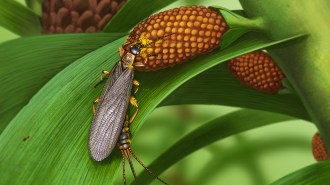 Paleontology
PaleontologyThe oldest known pollen-carrying insects lived about 280 million years ago
Pollen stuck to fossils of earwig-like Tillyardembia pushes back the earliest record of potential insect pollinators by about 120 million years.
By Sid Perkins -
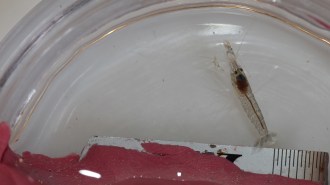 Animals
AnimalsThe fastest claw in the sea belongs to young snapping shrimp
When juveniles snap their claws shut to create imploding bubbles, they create the fastest accelerating underwater movements of any reusable body part.
By Jake Buehler -
 Neuroscience
Neuroscience‘Mommy brain’ doesn’t capture how the brain transforms during pregnancy
During the transition to motherhood, there's more going on than “momnesia,” neuroscientists argue. The brain changes to prep for the job of caregiving
-
 Life
LifeChemical signals from fungi tell bark beetles which trees to infest
As fungi break down defensive chemicals in trees, some byproducts act as signals to bark beetle pests, telling them which trees are most vulnerable.
By Freda Kreier -
 Life
LifeFungi don’t turn humans into zombies. But The Last of Us gets some science right
Fungi like those in the post-apocalyptic TV show are real. But humans’ body temperature and brain chemistry may protect us from zombifying fungi.
-
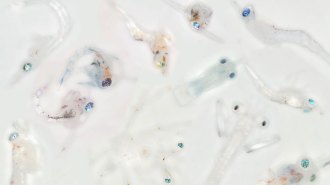 Animals
AnimalsGlassy eyes may help young crustaceans hide from predators in plain sight
Nanospheres in the eye reflect light that matches the color of the surrounding water, possibly making the animals invisible to nearby predators.
-
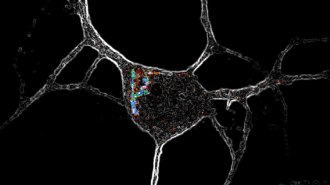 Health & Medicine
Health & MedicinePsychedelics may improve mental health by getting inside nerve cells
Psychedelics can get inside neurons, causing them to grow. This might underlie the drugs’ potential in combatting mental health disorders.